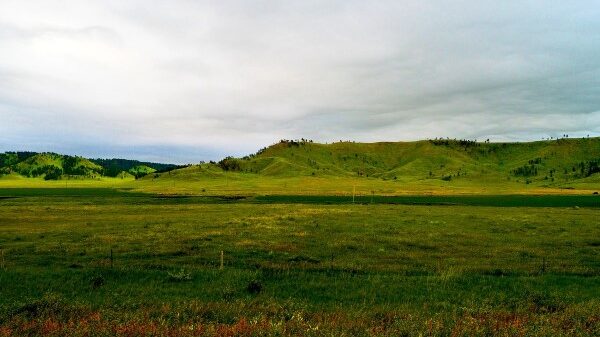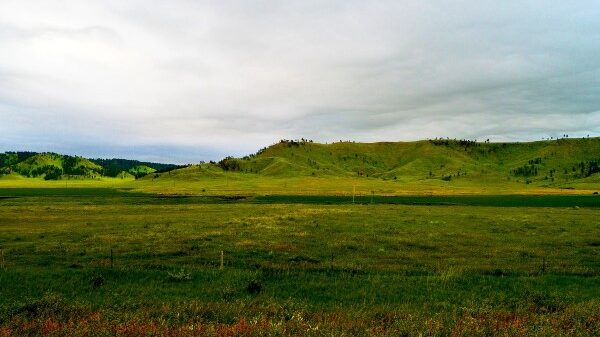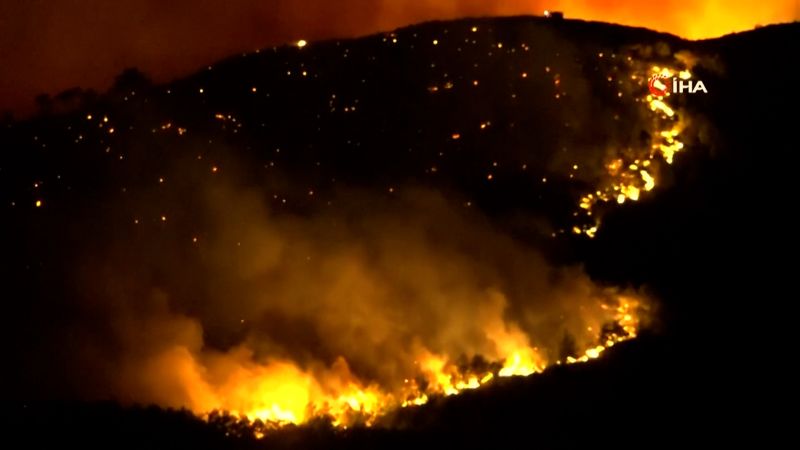In a dramatic escalation of natural disasters, Turkey is grappling with severe wildfires that have led to the evacuation of more than 50,000 people. Firefighters are valiantly battling blazes across the western provinces of Izmir and Manisa, as well as the southern province of Hatay. As of Monday, nearly 200 homes have been reported damaged nationwide, underscoring the widespread impact of these fires.
The wildfires, fueled by high temperatures and strong winds, have created a perilous situation in these regions. The Turkish government has mobilized significant resources, including firefighting aircraft and ground crews, to contain the fires and prevent further destruction. The situation remains fluid, with authorities on high alert as weather conditions continue to pose challenges.
Historical Context and Current Challenges
Turkey has a history of battling wildfires, particularly during the hot summer months. However, this year’s fires have been notably severe, exacerbated by a combination of climatic factors and human activities. Experts point to the increasing frequency and intensity of such fires as a sign of broader environmental changes.
Professor Mehmet Yildiz, an environmental scientist at Istanbul University, explained, “The current wildfires are part of a worrying trend. Climate change is altering weather patterns, leading to hotter and drier conditions that are conducive to wildfires. Additionally, urban expansion into forested areas increases the risk of human-induced fires.”
Impact on Communities and Infrastructure
The fires have not only displaced thousands but also threatened critical infrastructure. Roads and power lines have been damaged, complicating evacuation efforts and the delivery of aid. In some areas, residents have been forced to leave behind their homes and livelihoods, with uncertainty about when they might return.
Local authorities are working alongside national agencies to provide temporary shelter and essential supplies to those affected. The Turkish Red Crescent has been actively involved in relief efforts, distributing food, water, and medical supplies to evacuees.
Government Response and International Aid
The Turkish government has declared a state of emergency in the most affected regions, allowing for the rapid deployment of resources and personnel. President Recep Tayyip Erdoğan has vowed to support affected communities and has called for international assistance to bolster firefighting efforts.
The European Union has responded, sending firefighting planes and equipment to aid Turkey. This international cooperation highlights the growing recognition of wildfires as a global challenge requiring collective action.
Expert Opinions and Environmental Concerns
Environmental experts are urging for a comprehensive approach to wildfire management that includes both immediate response and long-term prevention strategies. Dr. Ayşe Demir, an ecologist, emphasized the need for sustainable land management practices and increased investment in fire prevention infrastructure.
“We need to rethink how we manage our forests and rural areas,” Dr. Demir stated. “This includes controlled burns, better land-use planning, and public awareness campaigns to reduce human-caused fires.”
Looking Ahead: Recovery and Prevention
As the fires continue to burn, the focus remains on containment and protection of lives and property. However, once the immediate crisis subsides, attention will turn to recovery and rebuilding. The Turkish government has pledged to support reconstruction efforts, but the path to recovery will be long and complex.
Meanwhile, the wildfires serve as a stark reminder of the urgent need to address climate change and its impacts. As Turkey and the world confront these challenges, the lessons learned from this crisis may inform future strategies to mitigate the risk of similar disasters.
For now, the priority remains on extinguishing the fires and ensuring the safety of all affected communities. The resilience and solidarity of the Turkish people, combined with international support, will be crucial in overcoming this devastating event.








































































